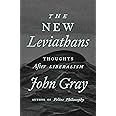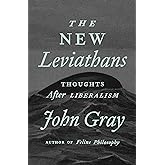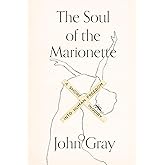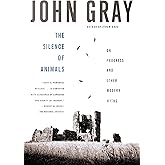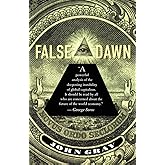
Amazon Prime Free Trial
FREE Delivery is available to Prime members. To join, select "Try Amazon Prime and start saving today with FREE Delivery" below the Add to Cart button and confirm your Prime free trial.
Amazon Prime members enjoy:- Cardmembers earn 5% Back at Amazon.com with a Prime Credit Card.
- Unlimited FREE Prime delivery
- Streaming of thousands of movies and TV shows with limited ads on Prime Video.
- A Kindle book to borrow for free each month - with no due dates
- Listen to over 2 million songs and hundreds of playlists
Important: Your credit card will NOT be charged when you start your free trial or if you cancel during the trial period. If you're happy with Amazon Prime, do nothing. At the end of the free trial, your membership will automatically upgrade to a monthly membership.
Buy new:
$18.00$18.00
Ships from: Amazon.com Sold by: Amazon.com
Save with Used - Good
$2.20$2.20
$3.98 delivery Tuesday, January 21
Ships from: glenthebookseller Sold by: glenthebookseller

Download the free Kindle app and start reading Kindle books instantly on your smartphone, tablet, or computer - no Kindle device required.
Read instantly on your browser with Kindle for Web.
Using your mobile phone camera - scan the code below and download the Kindle app.

Heresies Paperback – January 1, 2004
Purchase options and add-ons
- Print length216 pages
- LanguageEnglish
- PublisherGranta Books
- Publication dateJanuary 1, 2004
- Dimensions5 x 0.5 x 7.75 inches
- ISBN-101862077185
- ISBN-13978-1862077188
Book recommendations, author interviews, editors' picks, and more. Read it now.
Frequently bought together

Customers who viewed this item also viewed
Editorial Reviews
From Publishers Weekly
Copyright © Reed Business Information, a division of Reed Elsevier Inc. All rights reserved.
About the Author
Product details
- Publisher : Granta Books; First Edition (January 1, 2004)
- Language : English
- Paperback : 216 pages
- ISBN-10 : 1862077185
- ISBN-13 : 978-1862077188
- Item Weight : 2.31 pounds
- Dimensions : 5 x 0.5 x 7.75 inches
- Best Sellers Rank: #2,089,608 in Books (See Top 100 in Books)
- #8,385 in History & Theory of Politics
- #17,887 in Historical Study (Books)
- #41,659 in Sociology (Books)
- Customer Reviews:
About the author

John Gray, Ph.D. is the #1 bestselling relationship author of all time. He is the author of over 20 books, including The New York Times #1 Best-Selling Relationship Book of All Time: MEN ARE FROM MARS, WOMEN ARE FROM VENUS. His books have sold over 50 million copies in 50 different languages around the world.
John is a leading internationally recognized expert in the fields of communication and relationships. His unique focus is assisting men and women in understanding, respecting and appreciating their differences. John's advice can be easily used to improve relationships at home and in the workplace.
For more than 35 years, John Gray has conducted public and private seminars for thousands of participants. John entertains and inspires audiences with practical communication techniques. John's mission is for men and women to understand, respect, appreciate and work together.
John Gray is a popular speaker on the national and international lecture circuit and often appears on television and radio programs to discuss his work. He has made guest appearances on such shows as Oprah, The Dr. Oz Show, Good Morning America, The Today Show, The CBS Morning Show, Live with Regis, Fox & Friends Weekend, Good Morning New York, Larry King Live, CNN and Company and many others. He has been profiled in major publications across the United States. John Gray lives with his wife and children in Northern California.
Visit www.MarsVenus.com
Customer reviews
Customer Reviews, including Product Star Ratings help customers to learn more about the product and decide whether it is the right product for them.
To calculate the overall star rating and percentage breakdown by star, we don’t use a simple average. Instead, our system considers things like how recent a review is and if the reviewer bought the item on Amazon. It also analyzed reviews to verify trustworthiness.
Learn more how customers reviews work on AmazonTop reviews from the United States
There was a problem filtering reviews right now. Please try again later.
- Reviewed in the United States on January 26, 2012For those who have read Straw Dogs: Thoughts on Humans and Other Animals and Black Mass: Apocalyptic Religion and the Death of Utopia this books contains many (and some variations) of the same themes. I've enjoyed reading all three as he presents a very logical and convincing arguement. While part of me still holds out hope for humanity, this is definitely not the book to reaffirm that hope. I think he makes a convincing case that technology will not lead humans to some uptopian state, instead we use technology to reinforce our existing biases, beliefs, and behaviors (He expresses this much more eloquently than I just did).
- Reviewed in the United States on November 18, 2015An interesting read, even if you don't agree with his point of view: well reasoned & an interesting position. What if progress? & why do we accept it in such a doctrinaire manner? Why or humans [or that sub-group, Christians] of any more value than any other form [live or otherwise]?
A good introduction to Mr. Gray's thought, but best to move on to his other books, beginning with the latest [Straw Dogs, etc] and then on to is earlier work.
- Reviewed in the United States on September 21, 2016Read this if you want to read thing prophetic about the times we are entering, especially if Trump wins the 2016 election.
- Reviewed in the United States on December 21, 2014He's prescient....!
- Reviewed in the United States on February 16, 2005When I was younger I used to argue with others that belief in God was irrational and nothing more than superstition. I eventually realized that this was very upsetting to many people and stopped. Unknown to me, my own faith at the time was what John Gray calls liberal humanism, a belief that science and reason can lead to human progress. Over many years I have gradually became less sure of this. "Heresies" and John Gray's previous book "Straw Dogs" completed my disillusionment. I find he is as unsettling for me as I was for others.
John Gray is a Professor of European Thought at the London School of Economics. He has written several books on economics and modern politics and at one point was even an advisor to the government of Margaret Thatcher.
In this book John Gray brilliantly exposes the vanity and hubris of the human species and in particular the view that secular humanism is really a religion with God left out.
"Heresies" is a collection of 24 of his essays which were published in the "New Statesman" magazine during the period leading up to, during, and after the present war in Iraq. The issues he addresses are quite wide ranging, from a discussion of why liberal humanism is only a secular rendition of Christian myth, but without the idea of original sin, to the total misguidedness of the war in Iraq.
Like his other books, his writing is a model of clarity and precision in the statement of both his own ideas and the ideas of others. He has the extraordinary gift of making the reader have a revelationary understanding of what in retrospect should have been really quite obvious, but is normally hidden by the fog of humanistic ideals and a faith in the perfectibility of man.
His "Introduction" sets the tone for what is to follow:
"Secular societies are ruled by repressed religion. Screened off from conscious awareness, the religious impulse has mutated, returning as the fantasy of salvation through politics."
"Belief in progress is the Prozac of the thinking class." "...the idea of progress still pervades human culture. In the last analysis it is an assertion of faith in human will- the most absurd faith of all."
"Unlike science, ethics and politics are not activities in which what is learnt in one generation can be passed on to an infinite number of future generations. Like the arts, they are practical skills and they can be easily lost."
"The hope of a better future maybe shaky, but it is the only faith people have left. Lacking any genuine religion, they cannot accept the truth that the future will be little different than the past."
"The theistic belief that humanity has been given dominion over the world,...has been recycled as a humanist belief, that by using the power of science, humanity can escape the natural laws that govern all other animals."
In "Biotechnology and the Post-Human Future", he observes that some scientists believe that biotechnology can change the future course of human development and can lead to "what Lenin could only dream of becoming - an engineer of souls." But, unlike E. O. Wilson (whose writings he has a very high regard for), he doesn't share the belief that humanity can take charge of its own evolution.
In "Faith in the Matrix", he concisely outlines the premise of the film The Matrix, and sees that the main idea behind the unreal world of the Matrix is the outcome of a failed attempt to redesign the world so that it no longer contains suffering and evil. Modern governments also look to science and economic growth to achieve this for us since religion and politics have failed to rid the world of evil. He observes that if politics failed to prevent an absurdity such as the war in Iraq, what hope is there of eradicating hunger in the world. Even though technology can never be a surrogate for political action, in practice we will use it to mask problems we cannot solve.
In "When the Machine Stops", he discusses the shortcomings of the ideas of endless economic growth and globalization. Another essay discusses the absurd cult like beliefs of the cryogenics movement whose members think they can have their bodies frozen when they die to be resurrected to life again in the future. His predictions in essays on the consequences of the war in Iraq seem very prescient, but it remains to be seen whether his outlook for the future of Tony Blair will come to pass.
It is hard to argue with the reality of life as John Gray lays it out in this book, but after reading it, I was filled with a sense of gloom and pessimism about the human condition. Fortunately hope and optimism seem to be genetically programmed into the human animal and this soon kicked in again. If John Gray can live in the world as it is, then so can I.
I am not going to let my kids read this book though.
- Reviewed in the United States on May 28, 2013Heresies is a collection of John Gray's essays from the turn of the millennium ('99-'04) that originally appeared in the New Statesman. The book is divided in three parts, the second of which concentrates on the run up to the Iraq war. Here it is interesting to follow Gray's line of thought at a time when Bush and Blair were pitching their grand plan to invade Iraq.
Gray, a skeptic from the outset, was wary of the belief that forcing liberal democracy on the Iraqis would be in the best interest of all nations great and small. Bush's goal of "a single sustainable model for national success" smacks of heresy. The utopian promise of salvation through free-market economics is no less fantastical than the liberal-secularist faith in progress or the religious belief in paradise on earth. The neo-liberal creed can not deliver, according to Gray, just as the millenarian movements of medieval times (and of today among the more outrageous Christian fundamentalists) could not produce a world absent of evil.
Heresies is a good place to start in the John Gray oeuvre. The essays demonstrate how well he brings together religion, politics and philosophy without sounding academic. Chapter 11, "Joseph Conrad, Our Contemporary," is especially engaging. Gray considers Conrad's 1907 novel The Secret Agent as instructive and relevant today as it was on publication, a reminder that revolutionary political change brings more woe than wealth. For Conrad, humanism "is only Christianity dressed up in the language of reason and world-improvement." Gray crowns Conrad, who was born in 1857, "the first great political novelist of the twenty-first century."
Top reviews from other countries
 ToadReviewed in the United Kingdom on November 17, 2015
ToadReviewed in the United Kingdom on November 17, 20155.0 out of 5 stars Five Stars
Great book in very good conditon, A recommended read
-
 recluseReviewed in Japan on February 25, 2008
recluseReviewed in Japan on February 25, 20084.0 out of 5 stars 時事的なテーマが主となります
著者の作品を読むのはこれが3冊目です。この作品は著者がnew statesmenに掲載した論文をまとめたものです。時期的な関係もありイラク開戦をめぐるアメリカのネオコンがその題材となっています。ただこの部分は米国政治におけるネオコンの退潮と共に若干時代遅れになっているようです。part1は著者の持論である進歩と科学技術への幻想を支える抑圧された宗教心がもう一度開陳されることになります。そういう意味では他の作品と共通する部分が中心となります。faith in the matrixはvirtual realityを取り上げており、この部分の描写は現在の証券化商品の価値の消滅という現象を髣髴させます。part3は英国政治とブレア政権の評価という直接的には余り日本人の関心を引かない部分が中心となります。面白いのはのpart2の部分です。ここでは現在の国際関係が資源をめぐるパワーポリティックスに規定されているという認識がベースとなっています。その関連の中で、コンラッドの先駆性、経済学が前提とする希少性概念の現実における非現実性、国家主権の必要性の再評価、悪の存在とその除去の実現性,そして複数の価値の両立性に対するアメリカのナイーヴな認識、そしてpelagiusの人間性についての楽観姓など刺激的な論点が満載です。
 markReviewed in the United Kingdom on November 26, 2009
markReviewed in the United Kingdom on November 26, 20094.0 out of 5 stars reading from the vantage point of today
i found Grays writing to be entertaining and highly accessible, considering it is dealing with some complex issues. He is clearly knowledgeable in his subject areas and his assumption that the reader is as intelligent and well read as himself is pleasant, if probably wrong on both counts. It would be foolish to quibble with his factual information or with much of the implications it has for psychology or theology. it is on his pronouncements of future effects that things become a bit shaky. Not that i would have believed he could be wrong had i read this book at its time of publication, and if i had read the articles as they were printed then i would no doubt have become a total Gray bore. However, Tony Blair's government didn't collapse, the americans seem to be getting away with it in Iraq, and the tory revival was four years late. It is therefore refreshing to read a well argued and intelligent book that is at times wrong in its predictions. It stops you from getting too carried away with his point of view and keeping a healthy dose of scepticism about his views on things yet to pass.
 MartinReviewed in the United Kingdom on December 11, 2015
MartinReviewed in the United Kingdom on December 11, 20155.0 out of 5 stars Good read
Our book group mostly rated this highly
 P. WatersReviewed in the United Kingdom on July 30, 2015
P. WatersReviewed in the United Kingdom on July 30, 20155.0 out of 5 stars Five Stars
More genius from the Master...




